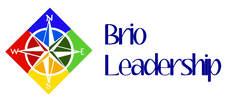 Leaders cast a long shadow. In a family-owned business, this means that the leaders, typically the founders or second-generation family members, set the tone for the rest of the company. Employees follow the example of their leaders, mimicking their behaviors, actions and decision-making styles. In a conscious business, leaders are aware of their influence and take care to ensure that they are leading with high self-knowledge and maturity. Leadership is a difficult and complex job. In addition to being smart, leaders in today’s marketplace must possess emotional and spiritual intelligence and an understanding of systems theory. They must possess self-awareness of their tendencies and habitual emotional reactions, they must have the ability to scan a room for its mood, and they must demonstrate empathy and compassion for their teams. They must be able to see an organization as a system in which everything is connected and the sum is greater than the parts. Lastly, they must have a long-term and holistic perspective of the decisions they make in order to account for all stakeholders of the organization. In this blog post we will discuss emotional intelligence and in future posts we will go into the other characteristics of conscious leadership. Emotional Intelligence Researchers in emotional intelligence, or EQ, have discovered that emotional intelligence is more important in the business world than intellectual intelligence, or IQ. Cindy Wigglesworth (2010) says that “IQ gets you in the door… EQ makes you successful” (slide 34). Up to 60% of job performance in all types of jobs can be related to emotional intelligence (Bradberry & Greaves, 2009, p. 21). EQ is your ability to identify and manage your own emotions, your awareness of others’ emotions and moods, and your ability to manage interpersonal relationships to positive outcome. Emotional self-regulation is essential in a conscious leader. We’ve all dealt with leaders who are unable to contain their extreme emotions, usually of anger. Call them yellers, bullies or assholes (R. Sutton, 2007), these toxic people are unable to identify and manage their own emotions and consequently misdirect their anger toward their employees. Unfortunately, when people are yelled at, their brains identify it as a physical threat and they become fearful. And when the human brain is gripped by fear, all higher intellectual abilities, such as problem-solving, big picture thinking and creativity, are shut off as the brain focuses on survival. Therefore, leaders who create toxic work environments really hurt themselves more so than anyone else, because their employees are neurologically incapable of doing their best work. Empathy is also crucial in a conscious leader. The ability to connect emotionally with people is a skill that leaders use to build a healthy work environment, which helps to create engaged employees. In one study, employees were asked to identify the most important characteristic of a good boss, the results of which identified this trait to be caring. Empathy, or the ability to imagine what another person is feeling, is the foundation of caring. A caring boss will create a loyal and productive workforce more readily than an insensitive one. The good news about emotional intelligence is that it can be improved! Unlike IQ, which is set at birth, anyone can learn new ways of thinking about their feelings and acting on them. Brio Leadership’s executive coaching is a service that helps leaders work on their EQ. We start with Emotional Intelligence and 360o assessments to pinpoint areas that need focus. Then, building off those assessments, we create a development plan to help the leader work on areas that will enhance their effectiveness. Kristin Robertson, CEO of Brio Leadership, is dedicated to increasing the number of employees who are excited to go to work on Monday mornings. Services include executive coaching, leadership development classes and company culture consulting. Don’t forget to get a copy of Kristin Robertson’s new book, Your Company Culture Ecosystem, available on Amazon.
0 Comments
Leave a Reply. |
From the desk of
|
Our services |
Our Company |

 RSS Feed
RSS Feed

